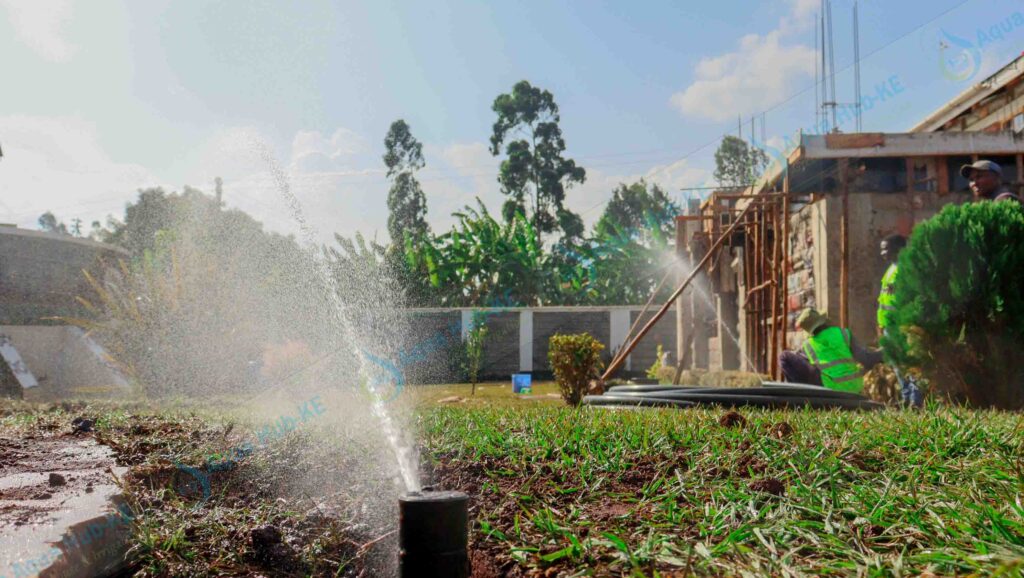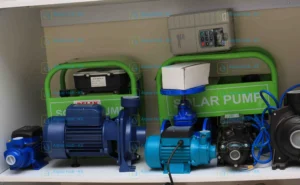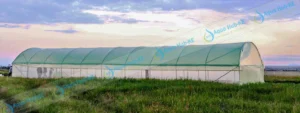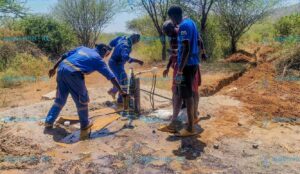Sprinklers for sale in Kenya can be purchased at varying prices from as low as KES 300 for micro sprinklers to KES 45,000 for large Rain gun Sprinklers. Aqua Hub LTD is major Irrigation Systems dealer in Kenya with reliable sprinklers, drip kits, pipes, rain hose kits and dam liners.
This article covers different sprinklers in Kenya, sprinkler selection, benefits, appropriate suppliers and maintenance.
Sprinkler Irrigation in Kenya
With the rise in rainfall deficiency, farmers in Kenya are seeking for alternative to enhance all-year production. Sprinklers are up to task when you need to irrigate crops that have higher water needs.
Sprinkler Sizes for Sale in Kenya
We have wide range of sprinkler sizes as listed below.
- Impact Sprinklers: Our impact sprinklers are in sizes of ¾, 1 and 1 ½ inch.
- Micro Sprinklers: Available in input diameter size of 16mm and 20 mm sizes.
- Rain Gun sprinklers: We stock rain gun sprinklers in sizes of 1, 1 ¼, 1 ½ and 2 inch.
- Flange Rain Guns: Often comes in 2 and 2 ½ inch sizes
- Pop up Sprinklers: ¾, 1 and 1 ½ inch.
Cost of Sprinklers for Sale in Kenya
The cost of all our sprinkler heads are as the prices shown;
Impact Sprinkler Prices in Kenya
| Sprinkler Type | Spray Radius | Cost (KES) |
| Sprinkler 3/4 “-Plastic | 8–12 meters | 500 – 800 |
| Sprinkler 1″ – Brass | 12–20 meters | 4,500 – 5,300 |
| Sprinkler 1.5″-Brass | 20–28 meters | 7,000 – 8,500 |
| Sprinkler 2″- Brass | 28–36 meters | 10,000 – 13,000 |
Rain Gun Sprinklers Prices
Our Rain Gun sprinklers for sale are between KES 5,500 to KES 47,000 depending on the flow rates, sizes and types of sprinklers.
Micro-Sprinkler Prices
Our Prices for micro-sprinklers range from KES 250 to KES 500.
Pop-up Sprinkler for sale
Lawn or pop-up sprinklers for sale in Kenya cost around KES 2,800 to KES 5,000, cost depends on the size.
Sprinkler for Sale: Reliable Suppliers in Kenya
Sprinkler heads are one of the modern irrigation solutions known for their excellent watering effect in wide range of uses. You can buy quality sprinklers from Aqua Hub Kenya LTD.
Sprinkler Installation by Aqua Hub Kenya
We install sprinkler systems according to the crop requirements of our clients in all regions in Kenya and Beyond. Our installation is professional, and we recommend using our sprinklers and irrigation materials for installations we conduct.
Types of Sprinklers for Sale in Kenya
Impact Sprinklers
Designed with an oscillating arm that breaks water into rain effect sprays. Impact sprinklers are built with strong and non-corrosive plastic and brass body materials thus durable. Due to high flow rates, they are applicable in irrigation of crops such as maize, pastures and vegetables. Available in different brands and sizes for varying plant water needs.
Rotor Sprinklers
Uses gear-driven mechanism to produce a uniform water distribution and larger coverage than impact sprinklers. Rotor sprinklers have adjustable arcs and flow rates. Suitable for lawn, garden and field irrigation.
Fixed Spray | Pop-Up Sprinklers

Plastic or metallic sprinklers designed for use in lawn and landscape irrigation. Mainly designed with a pop-up effect when irrigation starts and retraction when complete. Covers large areas and irrigates on 0 to 360° rotation.
Micro-Sprinklers
Micro-sprinklers are low volume sprinkler types for orchards, vegetables and greenhouse irrigation. Highly efficient due to low water usage and thus reducing cost.
Rain Gun Sprinklers
Large sprinkler heads for irrigation of large areas. Provides high flow rates at high pressure and for that reason, they are good for irrigation of maize, sugarcane, cotton, rice and coffee farms.
Why Choose Sprinklers in Kenya?
- Uniform water distribution: Sprinklers cover all the parts of the farm ensuring volumes of water that reaches all the plants.
- Adapted to Different Terrains: Sprinklers are suitable to both slopy and flat terrains, provides solution where driplines may not work.
- Low Soil Erosion: sprinkler irrigation is often done on dry soil. The soil soaks water and thus lower erosion compared to furrow irrigation.
- Low Labor Cost: labour needs are minimal because irrigation can be automated.
- High Yield and Quality Harvest: Due to sufficient irrigation, crops generate high and quality yield.
- Movable: Sprinkler heads can be connected to a movable system thus few of them will be needed to irrigate a large farm.
- Compatible to multiple plants: sprinklers can be used to irrigate wide variety of plants including field to greenhouse plants.
- Fertigation and chemigation: fertilizer and chemicals can be supplied to crops using sprinkler systems. Pesticides and various doses such as foliar feeds can be distributed using misting devices.
- Lower Cost of purchase than drip irrigation: Sprinklers cost less per acre than drip irrigation kits.
- Long term performance: sprinklers are highly durable compared to rain hose systems; the nozzles are resistant to insect damage.
- Corrosion Resistance: made of materials that does not corrode with water or air.
How Sprinkler Irrigation Effect Occurs
When you open the water flow, pipes carry water to sprinkler heads under high pressure, resulting to sprinkler heads rotation and water release. As the sprinkler heads move in circular motion the arms rotate in opposite direction breaking water jets to fine droplets.
The operation of irrigation sprinklers relies on water pressure. High pressure is necessary for sprinklers to create a balanced distribution through the sprinkler head rotation. Sprinklers are available in different types designed for specific crop use. Those with high flow rates are for large or tall plants with high water requirement plants.
What Makes up a Sprinkler System | Sprinklers for Sale in Kenya
A simple sprinkler system is made up of mainline pipes, pipe laterals, fittings and sprinkler heads that enhance water flow. At the start a water source such as tank, river, or dam should be available to supply the irrigation water. Mainline connections use HDPE pipes known for their resistance to corrosion and damage. Sub-mainline or branching connection from mainline also use HDPE Pipes but with a lower diameter than the mainline. Connectors are the Tee and elbow fittings that connect mainline to sub-mainline, and sub mainline to laterals pipes. For control of water flow, valves and pressure regulators are installed on the mainline or hydrant section. The system also requires filters to remove dirt which can block sprinkler nozzles.
Factors to Consider When Buying Sprinklers in Kenya
Selecting the appropriate sprinkler system for your needs in Kenya requires careful consideration of several factors:
- Know Your Crop: Different crop types have varying water requirements and canopy structures. For instance, leafy vegetables might benefit from overhead spray, while orchards might be better suited to micro-sprinklers.
- Assess Your Land: The farm size and layout will dictate the number and type of sprinklers needed, as well as the pipe network design.
- Water source: The water source and its availability will determine the achievable pressure and flow rate, influencing the type of sprinklers you can use.
- Soil type: Understanding your soil type and its infiltration rate is crucial to select sprinklers with an appropriate application rate to prevent runoff.
- Terrain type: The topography of your land will affect pressure requirements and the optimal placement of sprinklers to ensure even coverage.
- Budget Realities: Consider both the initial investment in the system and the long-term operating costs, including energy for pumping.
- Energy Efficiency: Given the cost of electricity or fuel for pumps, choosing an energy-efficient system and pump is crucial for sustainable operation.
How to Install Sprinklers
Proper installation is crucial for the efficient operation of any sprinkler system. The basic steps typically involve laying of pipes, connecting the sprinklers , setting up the pump and filtration devices, and testing the system for leaks and efficiency.
Maintenance of Sprinklers
Routine maintenance is key to maximizing the lifespan and efficiency of your sprinkler system in Kenya. This includes regularly checking for leaks and blockages in pipes and sprinklers, cleaning sprinkler nozzles to ensure proper spray patterns, inspecting pipes and fittings for any damage, and ensuring the pump is operating efficiently. Addressing common issues like low pressure, uneven water distribution, or clogged nozzles promptly will ensure the longevity and effectiveness of your irrigation investment.
Future Trends in Sprinkler Irrigation
The future of sprinkler irrigation in Kenya includes technological advancements in sprinkler systems such as;
- Smart Irrigation: Smart sprinkler systems that utilize weather data, soil moisture sensors, and automated controllers to adjust watering schedules based on real-time conditions are gaining traction, promising even greater water savings.
- Sustainable Power: The increasing adoption of solar-powered irrigation pumps offers a sustainable and cost-effective way to power sprinkler systems, particularly in off-grid areas of Kenya.
- Precision Agriculture: Integrating sprinkler systems with precision irrigation technologies, including GPS and data analytics, allows for highly targeted water application based on the specific needs of different zones within a field.





